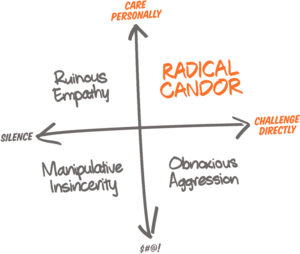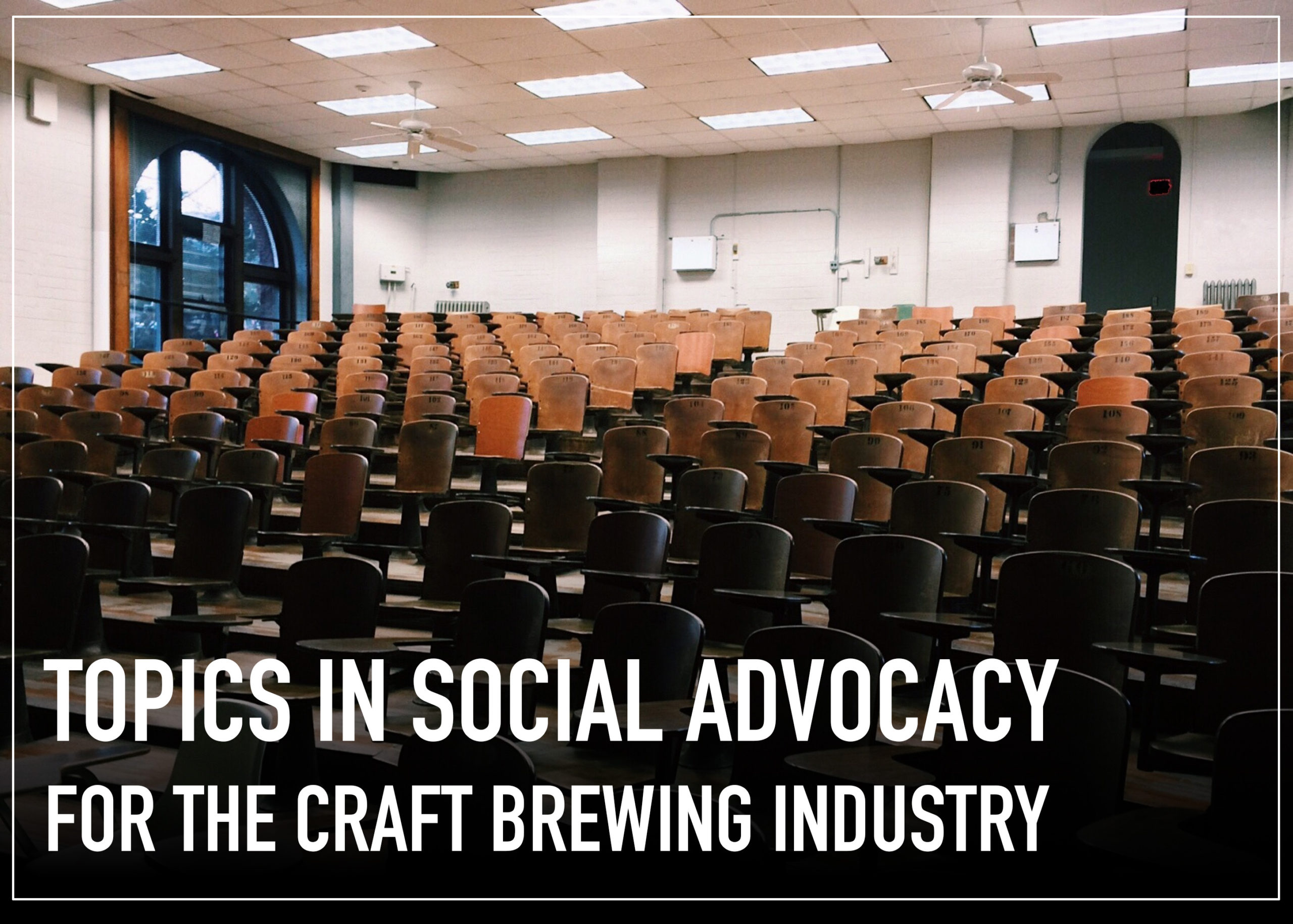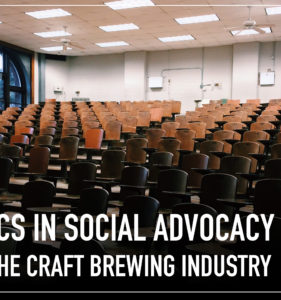Why a Course?
Blog posts have gotten boring.
In fact, I got so bored of my own blog posts that I stopped writing them for the better part of two years. Listicles are mind-numbing. How-tos never feel quite in-depth enough. And the long form editorializing that I was so fond of when I still had one foot in academia has revealed its true nature–navel gazing, self congratulatory, social media obsessed grandstanding–with some much needed time and distance from the ivory tower.
But beyond keeping myself entertained, I am a writer who is fond of useful narrative structures. And more importantly, I’m a firm believer that we are most effective when we stick to our strengths. Though I am no longer a college professor, my core strengths are still rooted in being an educator. And when the conviction strikes me to “do something,” my something has always been to leverage the spaces of teaching, learning, and storytelling for the uplift of the communities I belong to.
Social Advocacy in Craft Beer is at Inflection Point…and So Am I
The conviction to “do something” has been striking me for a while now and I’ve done just about everything in my power to ignore it. Why? Do something about what exactly? What are you talking about?
I’ll need to step back a bit to answer those questions.
The term “inflection point” is used too much these days, but I am going to use it again because it really does sound wonderful and important. We use the term to mark a significant change in a situation or a turning point. I believe that the practice of social advocacy in the craft brewing industry is experiencing both…and so am I.
If you’ve given me the honor of your attention by reading something I have written or attending one of my talks in the past, you will know that I am fond of starting with definitions. I find the habit frames meaty conversations in the context of clarity, and so I will start here by defining what I mean when I say social advocacy.
Social advocacy is the act of supporting one or more causes that fight for the legal and natural rights of, or works to improve the well-being of, underrepresented and traditionally marginalized populations as a means of achieving social justice. For many in the craft brewing space, this advocacy work has been performed under the banner of diversity, equity, and inclusion (DEI) and has included the formation of affinity groups, the provision of DEI education, discrimination and harassment prevention efforts, workforce opportunity development, grantmaking and charitable giving, mentorship and internship development, and engagement in public dialogue about issues of concern.
Those looking to see conspicuous demographic change in the craft beer space are understandably impatient. Some are quick to conclude that nothing has come of past and current social advocacy efforts. However, those who are looking to other indicators like infrastructure building, monetary investment and distribution, and general awareness have seen a remarkable transformation in the last five years. And if we back up the clock on that observation of demography to 20-25 years ago, then there too we see considerable change.
But the inflection point that I am speaking of isn’t about the (far too) narrow goal of demographic representation. Rather, this inflection point can be defined by three related phenomena.
- A struggle in the context of social advocacy and activism that is taking place in the U.S. more broadly.
- The “for real, for real” end of the craft beer gravy train and the need to respond to new economic pressures as an industry.
- The role of social media platforms as the center of social advocacy efforts.
Here is the conviction that has been driving me. I believe that the progress of social advocacy work in craft beer is in danger of stalling out completely or even rolling backward. That is a fairly dire pronouncement for someone who has made hopefulness something of a calling card–one that asks for urgency, attention, and action.
Why, you might ask then, have I gone out of my way to ignore the building pressure to do something about this conviction? I’ll give you two honest (and admittedly insufficient) answers. First, I’ve told myself that the root causes of these changes are simply beyond my control–generational change as it pertains to the nature of social justice movements, economic conditions, and the stranglehold that social media have on our hearts and minds are realities and not up for debate. Second, I’ve convinced myself that putting my head down, staying the course, and leading by example are the best ways to proceed–”being the change I want to see in the world,” as they say. These are practical and noble sentiments, respectively. They have also gotten me off the hook from jumping into a turbulent fray that I extracted myself from long ago. (i.e., I got off the thing that used to be called Twitter.)
These are justifications I can no longer make. And so, I am resorting to what I do best to “do something” about my conviction–learning and teaching.

I believe that the progress of social advocacy work in craft beer is in danger of stalling out completely or even rolling backward.
One of my favorite activities as a college professor was developing new courses. You might assume that this process is a fairly unremarkable one. A college professor organizes information about a topic on which they are an expert, writes a series of lectures, creates some assignments, writes some exams, projects, or papers, and calls it a day. In fact, I’m sure this is the case for many courses. But for others–those courses I delighted in creating–the process started with a burning curiosity or question. Creating these courses, then, was not simply an act of bestowing knowledge upon a group of inert learners. Rather, they were processes of structured inquiry and investigation that were full of surprise and delight that I engaged in alongside my students.
It is in this spirit that I offer this course-like series of reflections on the practice of social advocacy in craft beer. In higher education, a “topics course” is a unique format. These courses engage a loose collection of related topics organized under a theme, rather than presenting a sequential series of lectures aimed at building a focused body of knowledge or skill. In the same way, this series will meander and cover a lot of ground.
The Syllabus: Topics Covered in this Course
Part 2. Where Are We Now? Your Auntie’s Take on the State of Social Advocacy Work in Craft Beer
This installment provides something akin to a “state of the movement” from an admittedly limited viewpoint–my own. It will dig deeper into the inflection point that I have introduced in this post and explore the tensions that are produced at the crossroads of belief and behavior. Finally, I will explain why I think those of us who drive social advocacy efforts in craft beer are fighting with our earrings on. (Oh…There will be so many metaphors!)
Part 3. What if there is No “Bad Guy?”: Systemic Inequity and the Logic of Oppression
This installment, I tackle what I have come to call the “bad guy fallacy.” It’s a version of the straw man fallacy, when one distorts or exaggerates another person’s argument and then attacks the distorted version of the argument instead of genuinely engaging. In the case of the “bad guy fallacy,” one doesn’t simply distort or exaggerate another person’s arguments. Rather, one turns the other into a prototypical villain and exaggerates that villain’s power and maliciousness. While logically dodgy, the real issue with the “bad guy fallacy” is that it shifts the focus of advocacy away from one of its core tenants–that injustice is systemic–and threatens to derail the achievement of real progress.
Part 4. Can We Talk Tactics?: The Neglected Opportunities Between Calling In and Calling Out
This installment explores the politics of blame and comfort or what regularly gets framed as a debate between the tactics of “calling in” and “calling out.” It will also discuss the roles of context, nuance, and skill in social advocacy work and offer two approaches to escaping the false binary of canceling vs complicity.
Part 5. Who is Allowed to Speak?: Our Reliance on Hierarchies of Difference
This installment explores the idea of brave spaces in social advocacy work and engages the concepts of credibility, lived experience, and expertise as they pertain to who is “allowed” to participate in social advocacy, who is “permitted” to lead, who is “authorized” to speak, and the dangers of weaponizing the armor that protects us.
Part 6. Are We in This Together or Not?: The Cost of Ignoring Collaboration
This installment explores the potential of collaboration, in particular uncomfortable collaboration, and the real threat of stagnation that failing to do so presents. It will also take a deeply personal look at the harm that members of the community of social advocates and activists do to each other intentionally and unintentionally, and consider the threat posed by social media echo chambers.
Part 7. What’s Next?: Radical Compassion in a World of Pain and Aggression
The final installment returns to some of the major themes presented in the second installment and offers an admittedly limited take on how we might productively move through this inflection point.
Course Materials
No course is complete without materials to extend and contextualize its content. However, let’s be real. This isn’t an actual course and no one has time to do extensive supplemental reading in support of a series of blog posts. Thus, course materials will be limited to recommended listening in the form of a podcast playlist.
Guest Contributors
Throughout this series, I will be including perspectives of a handful of people who make important contributions to, and observations of, social advocacy in craft beer. Among these, there will be several contributions from one guest contributor in particular. Months ago, in an effort to expand the content offerings on Viewpoints (this Crafted For All blog), we opened the platform to submissions from outside contributors through a pitch process. One of the first pitches we accepted was a fascinating and chewy proposal from Julie Rhodes to dig into the craft brewing industry’s attitudes about the aforementioned “calling out vs calling in” debate. While we fully suspected that the topic would spark some much needed conversation, we did not anticipate that the piece would inspire robust conversation, outrage, commiseration, ire, and more–before it was even published. In many ways, Jule’s article, the information she gathered in support of writing it, and the reactions to her inquiries serve as a case study for some of the larger themes I’ll be discussing in this series.
Disclaimers About Objectivity, Civility, and Radical Candor
The course format gambit isn’t one without risk or baggage. Where blog posts are readily understood as the space of personal opinion and bias, courses carry the veneer of objective truth. So, let me be up front and offer some disclaimers.
I will not be objective, but I will endeavor to be fair. Though I have “been around the block” a few times when it comes to social advocacy in craft beer, my voice is just one and I will fully own everything in this post and those that follow as products of my own observations, experiences, education, and interpretations. I do not profess to be the arbiter of truth. You may take or leave anything you read here as you wish.
I will be civil. Civility gets a bad rap these days. Too often, it’s understood as the externally imposed requirement for inauthentic politeness in the interest of preserving someone else’s feelings. I tend to think of civility as an act of self-discipline that involves centering my values, purpose, and the impact I want to have in the world over personal feelings like hurt, anger, betrayal, or frustration. Though I often find myself sitting in front of a heaping platter of bones to pick, those are best dealt with over awkward phone calls, while tucked into coffee shop corners, or bellied up to dark bars with shockingly great jukeboxes, rather than between the lines of blog posts.

I will occasionally engage in radical candor. Radical candor is among a handful of frameworks that I find infinitely compelling and undeniably terrifying. Developed by Kim Scott, radical candor involves being kind and clear by offering feedback and constructive criticism at the intersection of directness and personal care. I am good at neither giving nor receiving radical candor, but I aspire to be better at it every day and this course is the best opportunity I have been given to practice since I was introduced to Scott’s work.
Finally, to that somewhat buried point about personally reaching an inflection point–I too am on the cusp of a significant change of situation and have reached a personal and professional turning point. This personal inflection point is forcing me to consider new strategies and tactics for driving impact in an industry that I deeply love, and to get serious about being a physically and mentally healthier person with more meaningful boundaries and fewer attachments to work.
Change, as they say, is afoot.
Read Part 2: Where Are We Now? Your Auntie’s Take on the State of Social Advocacy Work in Craft Beer


